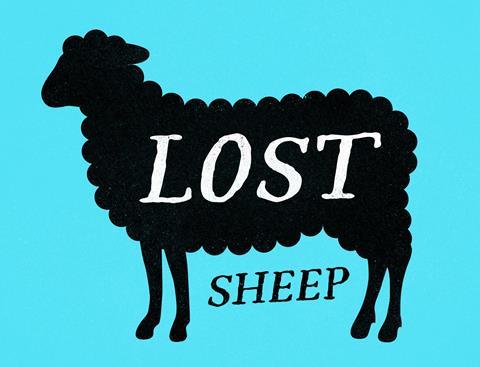You’re not the lost sheep. The children are.

“Oh the overwhelming, never-ending reckless love of God…it chases me down, fights til I’m found, leaves the 99.”
I challenge anyone from the charismatic evangelical background (or however you identify) to read the line without doing so in the tune of Cory Ashbury’s very catchy tune. I love this song. It’s a banger that I can be caught regularly belting from my kitchen sink as I turn my chores into a mini worship set.
I love it for the tune and for drawing on the parable of the lost sheep. The imagery it evokes of God as the good shepherd is a beautiful one.
Cory (it might be presumptuous to be on first name terms) has drawn of course on a corker of a parable – that of the lost sheep. In Luke 15 it is part of a line of images Jesus uses to explain the kingdom of God. There’s the sheep, the coin and the son. Luke’s passage is a masterpiece of building imagery with that crescendo of the prodigal son, a story so rich we haven’t yet run out of reflective sermons, talks, interpretive dances and more.
They also happen to be a favourite passage for exploring with new Christians to show how much God loves them and is drawing them to Godself. As a children’s worker, volunteer youth worker and now ordinand I’ve done my fair share of almost all the above (interpretive dance isn’t my go-to medium, but never say never).
“Jesus uses the parable here as a lesson on why children should be treated with respect”
However, all should come with a warning when it is only used for those who are speaking to seekers or however we might refer to those whose faith is growing, new or not yet kindled. If we leave it behind once they have matured their faith it becomes a me-centric image only.
This is the one little fly in the ointment that is Cory Ashbury’s song. The overwhelming reckless love of God is directed to me as the lost lonely wandering sheep that God leaves the 99 for. This is like a warm comfort blanket in which I feel all warm and snuggly in its protection. Or maybe like the filling comfort of McDonalds, to apply my own modern simile. It’s satisfying for a short term, but it’s not the most nutritious reading of the parable.
That’s where Matthew (we’ve only ever been on first name terms) comes in. Matthew’s Gospel sets it not as a simile for the kingdom of heaven exactly, although there are references to the kingdom of heaven – it’s where those such as these little kids belongs to (Matthew 18:3). Rather Jesus uses the parable here as a lesson on why children should be treated with respect and how important this is to God (Matthew 18:10-14).
There’s a few things we can draw out from this parable and its setting that turn the me-centric reading of Luke 15 on its head and make clear we alone are not the sheep. The sheep are children and God loves them so, so much, not just us. When we grasp both sides of this parable the love of God goes from 2D to 3D.
The first is this: children are the exemplar of faith, not us. We do teach them, but we should approach that not as a one-sided experience in which we tip all of our wisdom into this empty bucket of a human. It is the disciples not the children who are told to change and become more like the children, not the other way around (Matthew 18:3). How might that change the discipleship you give as a parent or leader?
The second is this: there will be stumbling blocks. They are, in fact, bound to come according to verse 7. As children grow, they do so not just physically but spiritually as well. The devil is prowling always (1 Peter 5:8), but this isn’t the stumbling block Jesus warns about here though. It’s us. The parable of the lost sheep and its setting is not just a reminder of God’s reckless love, it’s a warning against being the reason any sheep isn’t in the flock.
The third is this: God will call home God’s wandering sheep. God’s reckless love is towards us, but in this parable the imagery is used to show how much God loves children. This is a deep comfort to those of us who care for, love, raise or lead them. It’s not on us. It’s the good shepherd who calls them home.

































